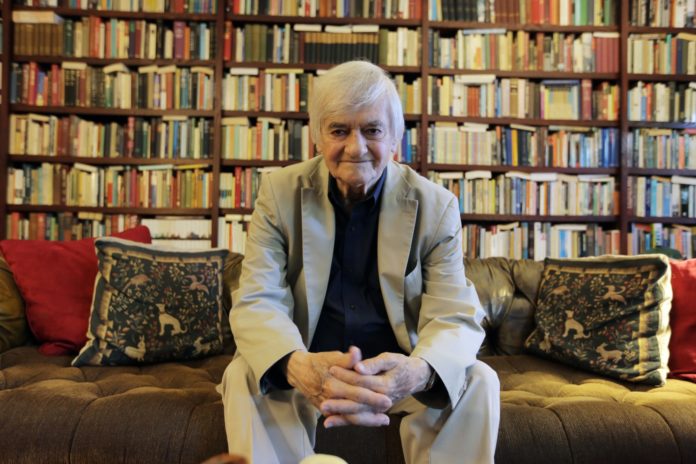
By Corrie Coleman | Reporter
“There’s nothing better than a professor that can lecture for fifty minutes and captivate the whole room, and that was Dr. Vardaman,” Dr. David Chrisman, history professor and department chair at the University of Mary Hardin-Baylor, said.
Professor Emeritus Dr. James Vardaman, died on Jan. 31 at the age of 89.
Vardaman taught history at Baylor for 33 years before retiring in 2000. He led study abroad trips to over 40 different countries, giving hundreds of students a chance to experience new cultures. He began the Baylor in the British Isles and Baylor in Maastricht programs. These programs continue to provide the opportunity to travel to hundreds of students each year.
“I was just kind of spellbound by the way that he presented history,” Chrisman, a former student of Vardaman’s, said.
Chrisman also traveled on overseas trips with Vardaman, once through Baylor in the British Isles and again through an alumni trip to Russia. He recalled Vardaman singing folk songs with locals in Ireland as well as leading eight-hour walking tours of London. These are memories that Chrisman said he will never forget.
Today, Chrisman credits much of his passion for history to his time with Vardaman, both in class and traveling.
“I enjoyed history more than anything else and a lot of it was because of him,” Chrisman said. “He was probably the greatest mind that I’ve ever been exposed to.”
E.E. Dutch Schroeder, former Baylor baseball coach and longtime friend of Vardaman’s, said Vardaman was involved in many activities outside of his department.
“He was highly involved in things that went on at Baylor, not just in his little corner of history,” said Schroeder. “He came to all of our games. He came early to the stand when there wasn’t anyone there yet … I considered him a special friend.”
James SoRelle, Baylor history professor, remembers Vardaman as a scholar and role-model. He explained that Vardaman taught his colleagues as well as his students, recommending books and offering valuable insight.
“He was interested in disseminating knowledge broadly, not just to his students,” SoRelle said. “I guess we were all his students in some ways.”
SoRelle said that even today, his work continues to impact the university.
“His students loved him. He loved them and he loved Baylor university,” SoRelle said. “There are so many legacies that he has left. Students aren’t going to forget them. They are going to continue to benefit from them.”
SoRelle said Vardaman’s time starting and leading study abroad trips has greatly impacted Baylor. He believes that as he and his wife led overseas trips, the Vardamans gave hundreds of students the opportunity to have life-changing experiences.
“For any university that aspires to these transformative educations, [study abroad] is part of it,” SoRelle said. “And that was one of his enormous contributions to the university.”
In a 2016 interview, Vardaman discussed the importance of studying abroad and experiencing new cultures.
“When you go abroad, you encounter everything. And a great deal of it is very different,” Vardaman said. “You realize you have to see things differently.”
Vardaman believed in the power of building relationships across cultural boundaries.
“You get to know those people and you just think ‘I couldn’t go to war with these guys,’” Vardaman said. “To know them, to talk with them, to see them, it gives you a feeling that you can never get by reading the newspaper or seeing it on TV. It says ‘Let’s work real hard for peace.’”
Vardaman is survived by his wife, Elizabeth Vardaman, who is the Associate Dean for Engaged Learning and Baylor.
“Both she and her husband are emblematic of Baylor’s mission,” SoRelle said. “Both of them have given their lives to the university.”





